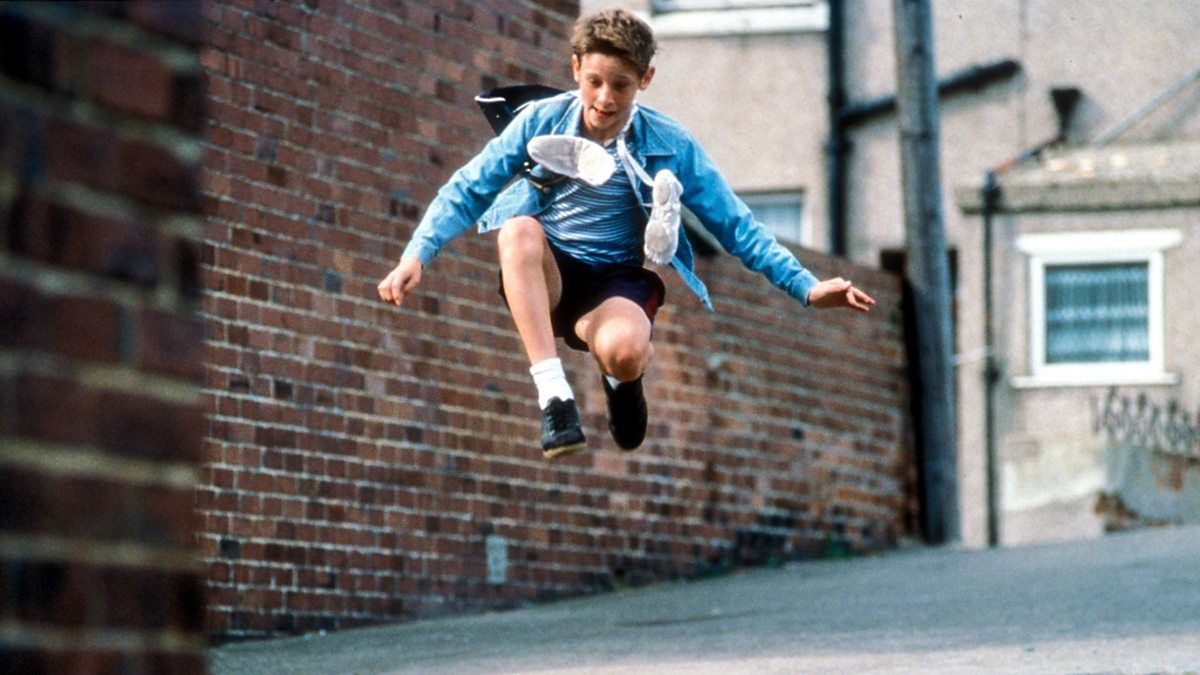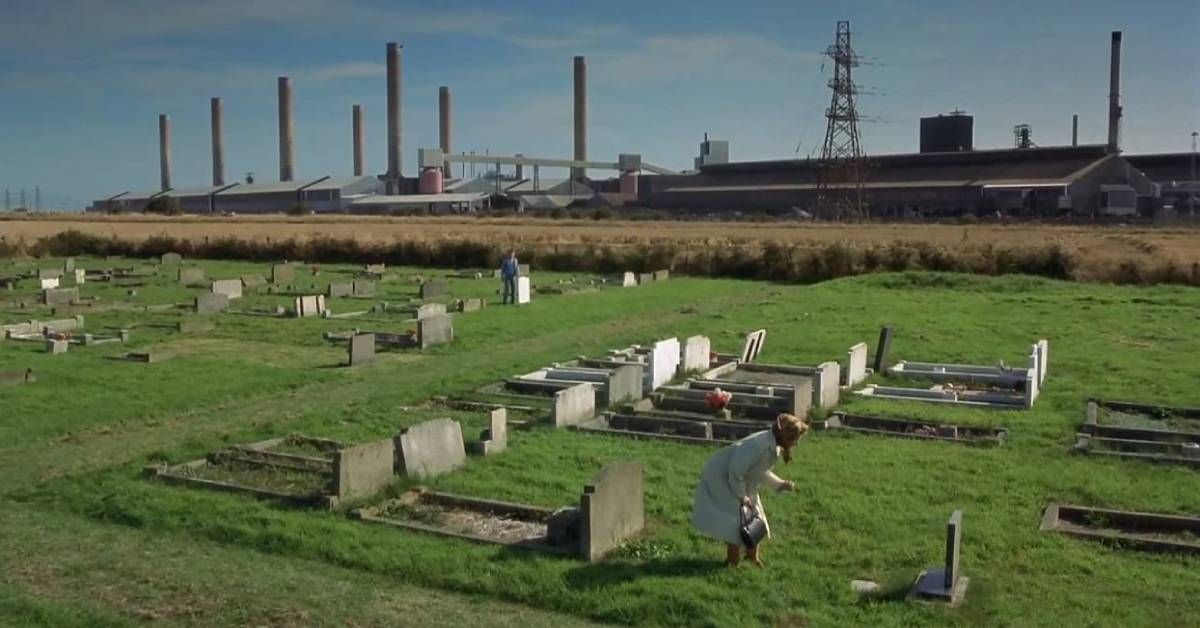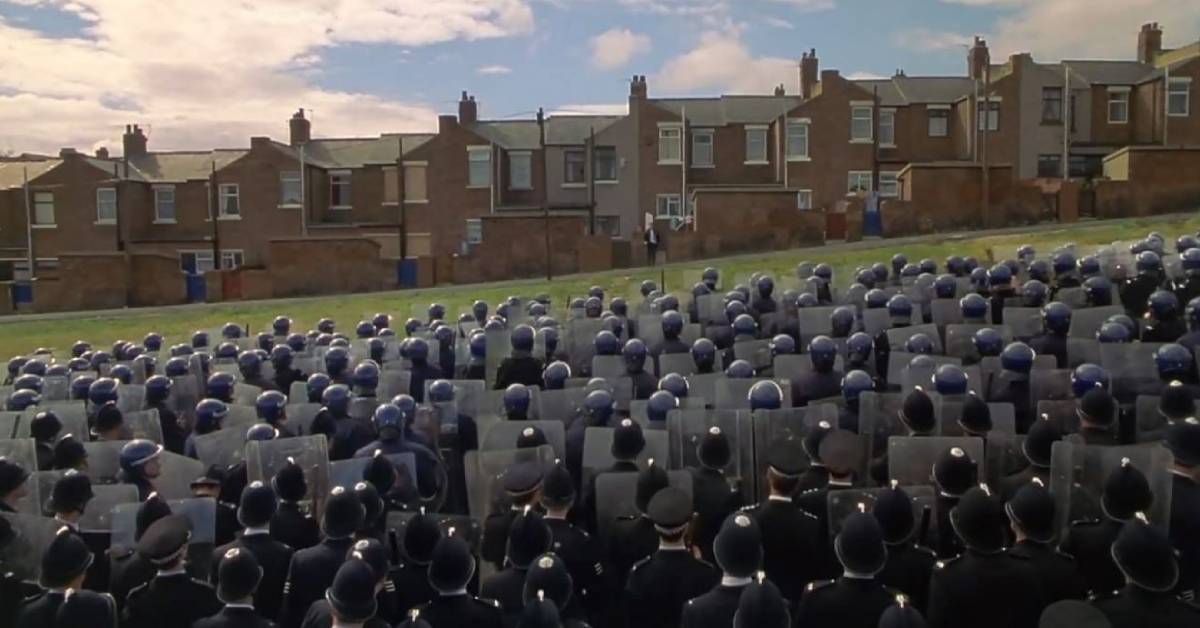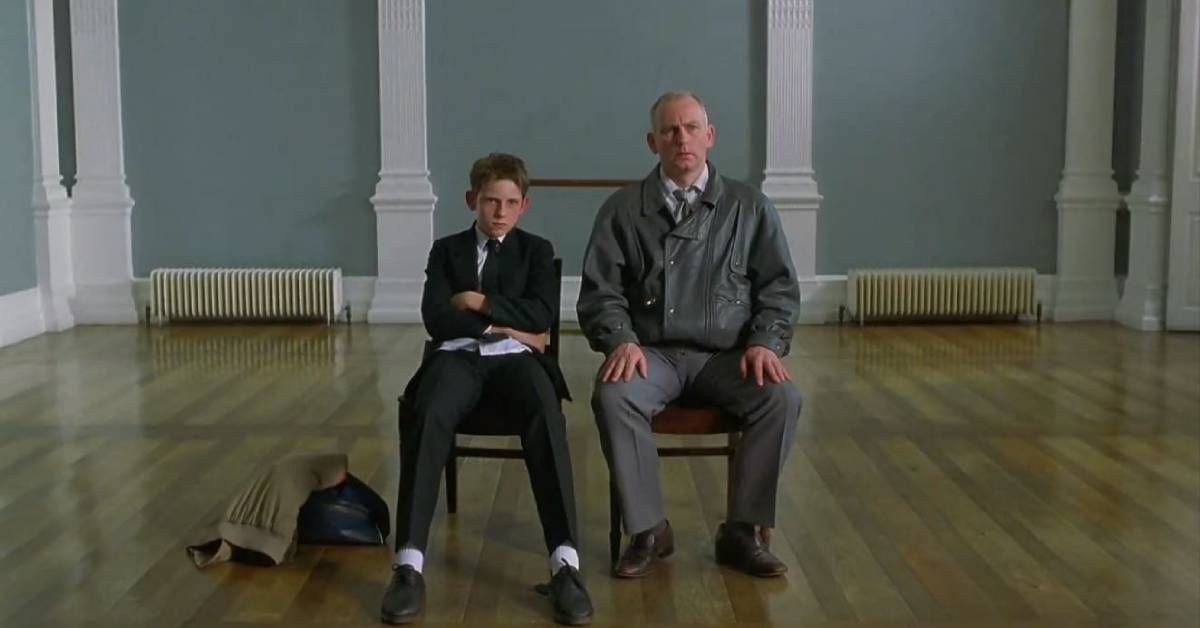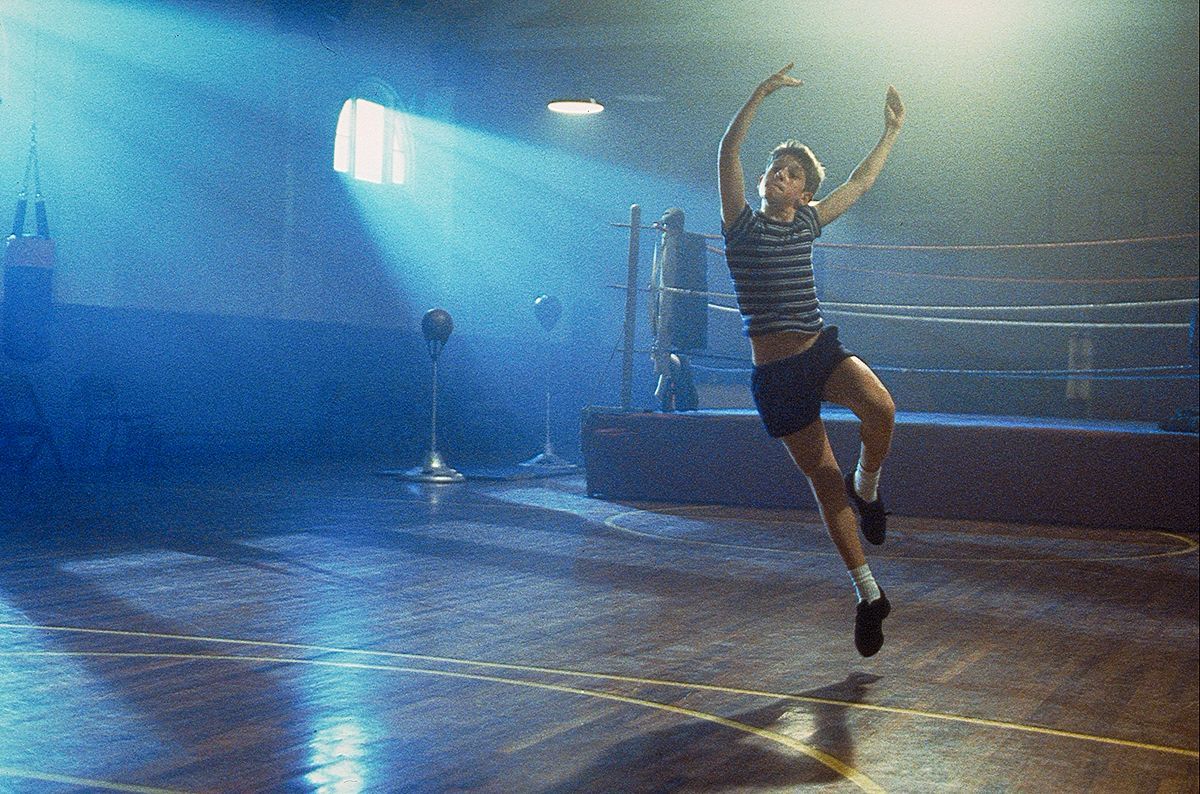Summary
- Directed by an exemplary Stephen Daldry, Billy Elliot is a critically acclaimed and commercially successful British film.
- Billy Elliot intertwines personal growth with the historical context of the 1984-1985 miners' strike in England.
- The film dismantles toxic views of traditional masculinity, showcasing accepting and supportive characters like Michael and Billy's father.
A talented young boy becomes torn between his unexpected love of dance and the disintegration of his family. What an inspiring movie premise. More than 20 years later, lead actor Jamie Bell is still remembered for his iconic portrayal of Billy Elliot as a young boy.
The film follows widower Jackie Elliot (Gary Lewis) and his firstborn, fellow miner Tony (Jamie Draven), who take a dim view of 11-year-old second son Billy's poor record in boxing class, which worsens when they discover he sneakily transferred to the neighboring, otherwise girls-only-attended ballet class. Only one schoolmate, closet-gay Michael Caffrey (Stuart Wells), encourages Billy's desire, aroused by the teacher, Mrs. Wilkinson (Dame Julie Walters), who judged him talented enough for private lessons, to train and try out for the world-renowned Royal Ballet audition.
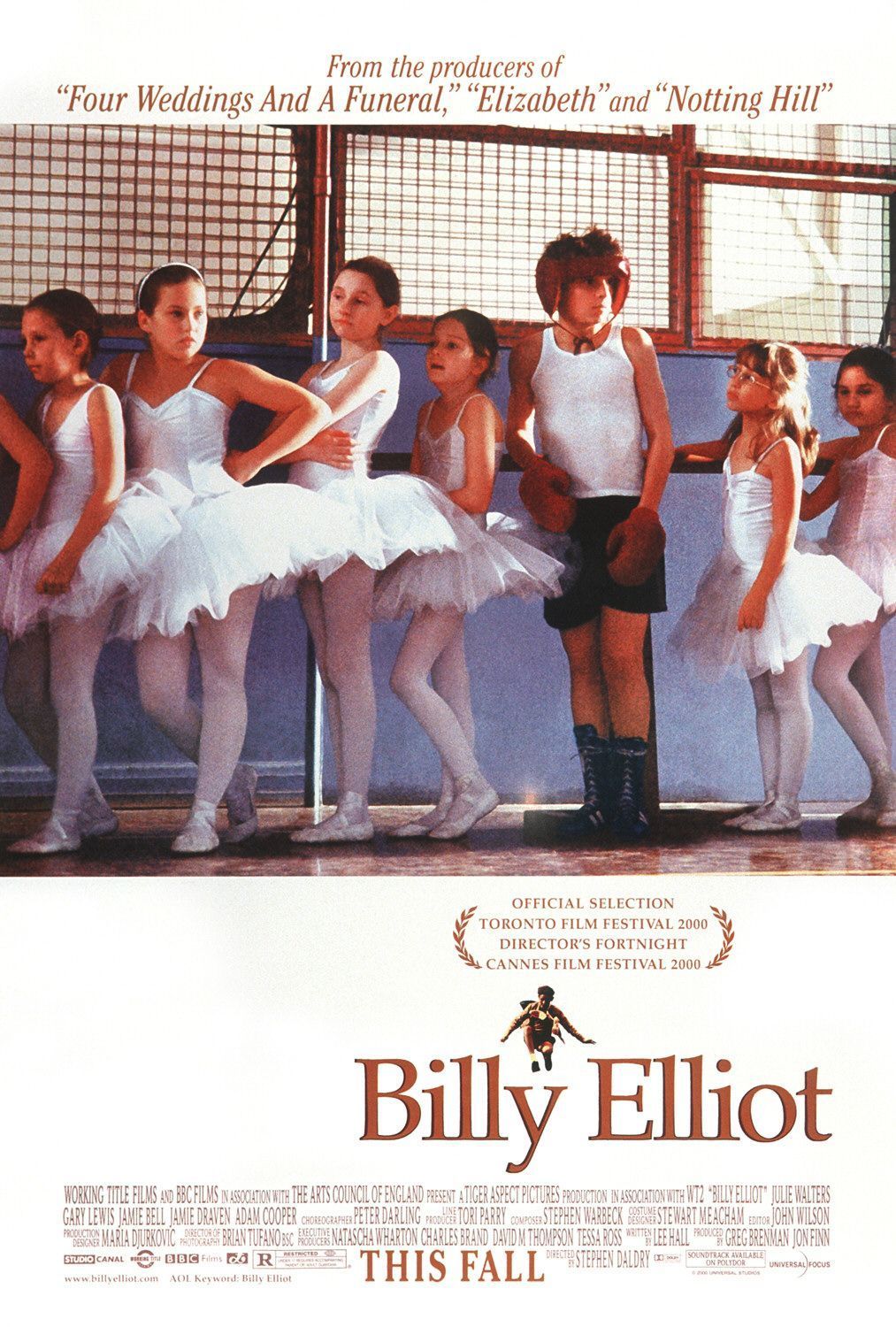
Billy Elliot
- Release Date
- November 10, 2000
- Director
- Stephen Daldry
- Cast
- Jamie Bell , Julie Walters , Jean Heywood , Jamie Draven , Gary Lewis , Stuart Wells , Mike Elliot , Billy Fane
- Runtime
- 110 Minutes
- Writers
- Lee Hall
Billy Elliot is arguably one of the greatest British films of all time. In our dissection below, we look at the various components that make the overall film such a hit. Here's a closer look at the award-winning masterpiece.
Directed By Stephen Daldry
Billy Elliot is very much a British film — not only does it take place in County Durham in North East England, but the film was expertly directed by an English director, none other than Stephen Daldry. To date, Daldry has received three Academy Awards nominations for Best Director, for films Billy Elliot (2000), The Hours (2002) and The Reader (2008). He has also joined an elite group of directors by receiving nominations for direction in theater, television and film.
"I knew the writer, Lee Hall, and I liked the emotional honesty of Billy Elliot," Daldry told IndieWire back in 2000. "Also Lee writes brilliant kids. And there’s a series of themes in it I rather enjoyed: Grief; finding means of self-identification through some sort of creative act, in this case dance; and the miner’s strike itself."
It was no surprise, given Daldry's talents, that Billy Elliot received positive critical response across the board. But it was also a commercial success, earning more than $109 million worldwide on a $5 million budget. At the 2001 British Academy Film Awards, the film won three of 13 award nominations.
Historical Significance
Billy Elliot's tie-in to the 1984-1985 miners' strike in England is effective in evoking Billy's quest for his true talent. This is because the tyrant that is the society around him tries to pull him back to the way of life led by his brother and father. If teenagers and youngsters can get past the characters' "F-word" usage throughout, then the film becomes a valuable, education lesson on the history of England during the Margaret Thatcher era — in addition to the universal goal of discovering and pursuing our passions as individuals.
Due to its overwhelming success and global appeal, the film was quickly adapted as a novel by Melvin Burgess, as well as a West End stage as Billy Elliot the Musical, first produced in 2005. It opened in Australia in 2007 and on Broadway in New York City in 2008.
Award-Winning Performances
Around 2000 boys were reportedly considered for the role of Billy before Bell was chosen for the role. Jamie Bell became the youngest winner of Best Actor in a Leading Role at the 2001 BAFTA Awards. The film also earned three Academy Award nominations that year, including for Best Director, Best Original Screenplay and Best Actress in a Supporting Role for Julie Walters as Billy's dance teacher.
"I was very touched by it," Walters told The Guardian about the film. "It's moving on all sorts of levels. It was a diamond in the sand. Different from all the middle-of-the-road crap that I get sent. I loved the character, and the fact that she was disappointed on every level possible. She was so grim and jaded. Her relationship with the boy was so unusual: she was so unmaternal, and he's a boy without a mother. She treated him not like a child, but more like a lover, a man. I found that very interesting."
Dismantling Toxic Views of Traditional Masculinity
In the story, Billy's father equates male ballet dancers with homosexuality. In 1984, and perhaps also in 2000 upon the film's release, it was important to tell boys they can explore interests that are coded as feminine and still identify as straight. In the film, Billy's best friend Michael (Stuart Wells) is gay — who reaches the high point of his young life by putting on one of the tutus. Michael is attracted to Billy, who doesn't reciprocate. Billy is not gay — he just wants to dance.
Billy’s father, meanwhile, worries that other people will think Billy is gay and treat him poorly for it, putting it on Billy to prove his straightness instead of fighting against people who would make life harder for gay people in the first place. A supporter of the miners' strike mentioned earlier, his dad then not only begins to understand his son's dream, but actually becomes a strikebreaker to get money for Billy to attend his audition. By the end, we see Billy's family siting next to Michael and his boyfriend as they watch Billy take the stage in Swan Lake. It is indeed moving, watching Billy’s father catch his breath as Billy leaps out, pride and awe radiating from his every pore.
"I'd say his personality is a lot like me," a young Bell once told CNN about the titular role. "He's a very mature character; I like to think of myself as a mature person. He's very open; he's got a lot of responsibility; he has to look after his Nana; and he's got a friend who is deciding which way he is turning (coming to terms with his homosexuality). So he is going through a hard time, but he is embracing it."

